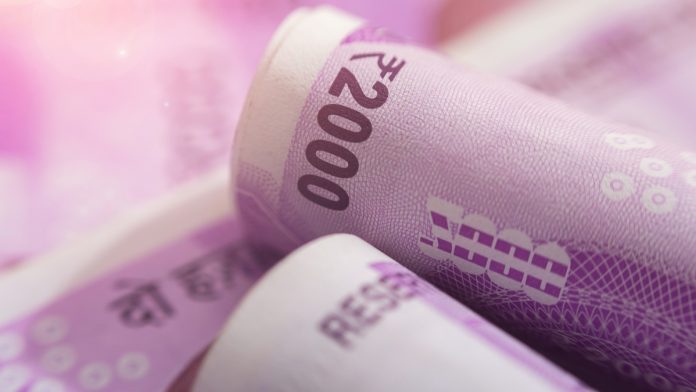- Indian Rupee (INR) rises as Das is re-elected to govern RBI
- Inflation remains in focus
- US Dollar (USD) rebounds after weak Q3 GDP
- US PCE, consumer sentiment in focus
The US Dollar Indian Rupee (USD/INR) exchange rate is heading higher on Friday paring losses from the previous session. The pair settled -0.37% lower on Thursday at 74.78. At 10:00 UTC, USD/INR trades +0.12% at 74.87. The pair is set to lose 0.17% across the week, the third straight week of losses.
The Indian Rupee is heading high on Friday, tracing domestic equities higher whilst oil prices hold steady following losses in the previous session.
The Reserve Bank of India will be governed by Shaktikanta Das for three more years after he was re-elected today. The move which has been cheered by the financial markets. Under Das the RBI has cut interest rates to record lows. However inflation remains very much in focus as Indian manufacturers are raising prices and passing some of the burden onto consumers. The rising price of some energy and raw materials could threaten the fragile economic recovery from COVID.
Separately, the Reserve Bank of India will be governed by Shaktikanta Das for three more years after he was re-elected. A move which has been cheered by the financial markets.
The US Dollar is trading higher across the board. The US Dollar Index, which measures the greenback versus a basket of major currencies trades +0.07% at the time of writing at 93.43 after two straight days of losses. The US Dollar is set to fall 0.2% across the week, its third straight week of gains.
The US Dollar is rebounding today after losses in the previous session. The US Dollar fell following data which revealed that economic growth in the US slowed in the July – September period to just 2%. This was down from 6.7% in the previous quarter.
The economic slowdown came as the US faced supply chain issues and a resurgence of COVID.
Today there is plenty more data to keep investors focused. Firstly, PCE inflation data is due – this is the Fed’s preferred gauge of inflation. Secondly Michigan consumer sentiment data is expected to ease slightly to 71.4, down from 72.8.





